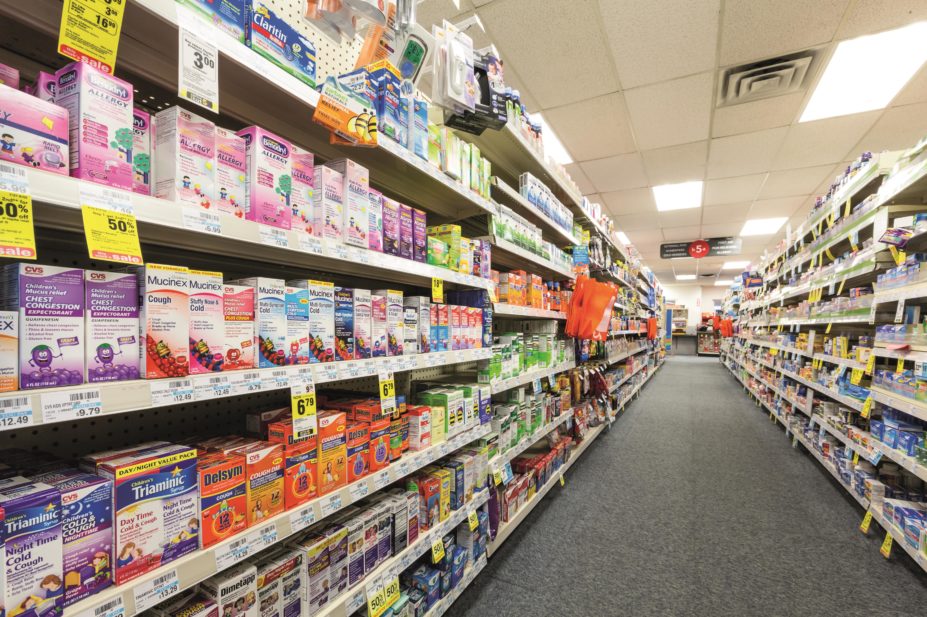
Mandritoiu / Shutterstock.com
Approval
Medicines recently licensed by the European Medicines Agency.
Daclatasvir
New medicine Hepatitis C infection
Daclatasvir (Daklinza; Bristol-Myers Squibb) has been licensed to treat chronic hepatitis C infection in adults. It is the first in a new class of non-structural 5A replication complex inhibitors that block two stages of the virus lifecycle — RNA replication and virion assembly. In an open-label study, daclatasvir 60mg daily was taken in combination with sofosbuvir (with or without ribavirin) for 12 weeks or 24 weeks. A further 12 weeks after the end of treatment, 99% of patients with genotype 1 infection (n=167), 96% of patients with genotype 2 infection (n=26) and 89% of patients with genotype 3 infection (n=18) had no signs of the virus in their blood. Other studies indicate that daclatasvir is as effective against genotype 4 infection as it is against genotype 1 infection. The most common adverse effects are fatigue, nausea and headache.
Tiotropium
New indication Asthma
Tiotropium bromide (Spiriva Respimat; Boehringer Ingelheim), an inhaled long-acting muscarinic receptor antagonist, has been approved to treat adults with asthma who are symptomatic while using a regular inhaled corticosteroid (≥800μg budesonide/day or equivalent) and an inhaled long-acting beta-2 agonist (LABA), and who have experienced one or more severe exacerbations in the previous year. Pooled data from two one-year studies involving 907 patients showed the addition of tiotropium bromide (via Respimat) to inhaled corticosteroid and LABA therapy improved lung function (mean increase in trough forced expiratory volume in one second 0.093L; P<0.0001) and reduced mean number of severe asthma exacerbations per patient-year by 20% compared with the addition of placebo (0.530 versus 0.663 exacerbations; P=0.0458). Dry mouth has been reported in around 1% of patients.
Positive opinion
Medicines that have been recommended for licensing by the European Medicines Agency.
Naloxegol
New medicine Opioid-induced constipation
Naloxegol (Moventig; AstraZeneca), an oral peripherally acting μ-opioid receptor antagonist, has been given a positive opinion for a licence to treat opioid-induced constipation in adults who have had an inadequate response to laxatives. Naloxegol is a pegylated (covalent attachment of a polyethylene glycol group) form of naloxol (an analogue of naloxone) that poorly penetrates the blood-brain barrier and therefore does not interfere with the analgesic effect of opioid treatment. In one study (n=652), 43% of patients who took 12.5mg and 49% of patients who took 25mg of naloxegol once daily had more than three spontaneous bowel movements (SBM) per week and an increase from baseline of more than one SBM per week, compared with 29% of patients who took placebo (P=0.028 and P=0.002, respectively). Naloxegol causes mild-to-moderate gastrointestinal side effects, such as abdominal pain and diarrhoea, that resolve with continued use.
Pasireotide
New indication Acromegaly
A licence extension for pasireotide (Signifor; Novartis), a long-acting repeatable (LAR) somatostatin analogue, to be used to treat acromegaly has been recommended for approval. It is likely to be used for adults who have not been cured by surgery or who cannot have surgery, and in whom the disease has not been controlled by another somatostatin analogue. In the six-month PAOLA study (n=198), 15% of patients treated with pasireotide 40mg and 20% of patients treated with pasireotide 60mg achieved biochemical control (defined as mean growth hormone concentration <2.5μg/L and a normalised insulin-like growth factor-1 concentration), compared with none of the patients treated with octreotide LAR or lanreotide Autogel (absolute difference 15%; P=0.0006 [40mg], and 20%; P<0.0001 [60mg]). Hyperglycaemia, diabetes and diarrhoea occurred more often in patients treated with pasireotide than with octreotide or lanreotide.
Application
Medicines for which a licensing application has been submitted to the European Medicines Agency.
Evolocumab
New medicine Hyperlipidaemia
Evolocumab (Amgen) is a monoclonal antibody that inhibits proprotein convertase subtilisin/kexin type 9 (PCSK9), an enzyme involved in cholesterol homeostasis. It is being developed to treat primary hyperlipidaemia, mixed dyslipidaemia and homozygous familial hypercholesterolaemia. In the 12-week LAPLACE-2 study, 1,899 patients stabilised on a moderate- or high-intensity statin were randomised into different groups to compare the addition of subcutaneous evolocumab (140mg fortnightly or 420mg monthly) with the addition of placebo or ezetimibe. Compared with placebo, evolocumab 140mg fortnightly reduced low-density lipoprotein cholesterol (LDL-C) by 66% to 75%, and evolocumab 420mg monthly reduced LDL-C by 63% to 75%. Compared with ezetimibe, mean reductions of 38% to 45% and 43.5% to 43.8% were achieved, respectively. Reported adverse events included back pain, arthralgia and headache.
Nivolumab
New medicine Lung cancer and melanoma
Bristol-Myers Squibb has applied for a licence for the monoclonal antibody nivolumab to be used to treat squamous cell non-small cell lung cancer (NSCLC) and advanced melanoma. Nivolumab is a programmed cell death-1 receptor inhibitor that is administered by intravenous infusion every two weeks. The licence applications include data from a single-arm phase II study (CheckMate 063) of 100 patients with NSCLC and a randomised phase III study of 167 patients with advanced melanoma (CheckMate 037). Interim analysis of CheckMate 037 shows an objective response rate of 32% in the nivolumab arm and 11% in the chemotherapy arm (dacarbazine or carboplatin plus paclitaxel). The incidence of severe or life-threatening adverse events was 9% with nivolumab and 31% with chemotherapy.
These medicine pipeline updates are collated by Joanne McEntee on behalf of UK Medicines Information. Further information is available at www.ukmi.nhs.uk/ndo.


